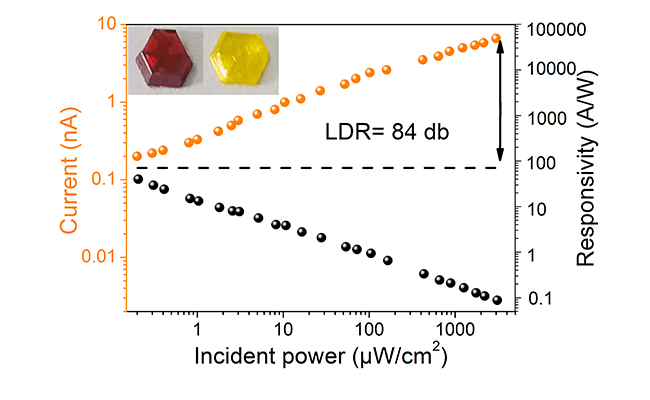A research team led by HAN Keli from Dalian Institute of Chemical Physics (DICP) of the Chinese Academy of Sciences fabricated a sensitive photodetector based on lead-free perovskite single crystals. Their findings were published in The Journal of Physical Chemistry Letters.
Organ-lead perovskites have recently attracted broad attentions due to the excellent optoelectronics properties. For instance, the high performance photodetectors have been developed based on organo-perovskites.
However, the heavy metal Pb in lead-based perovskites is toxic to both humans and the environment which is often considered as a drawback. Thus, finding a stable, non-toxic and high performance perovskite is highly desirable.

Sb3+ based single crystals and the responsivity of the photodetector. (Image by YANG Bin)
“We have developed a high performance photodetector based on MA3Sb2I9 microsingle crystals (MSCs), ” said Prof. HAN.
Scientists found that MA3Sb2I9 single crystals exhibited a low trap-state density of ~1010 cm-3, high carrier mobility of 12.8 cm2 V-1 s-1 and long carrier diffusion length reaching 3.0 μm.
The responsivity of MA3Sb2I9 single crystal photodetector can reach to 40 A/W for monochromatic light (460 nm).In addition, the photodetector shows fast response time (<1 ms), which corresponds to both high gain and gain-bandwidth product.
This work was supported by the key research project of National Natural Science Foundation. (Text by YANG Bin)